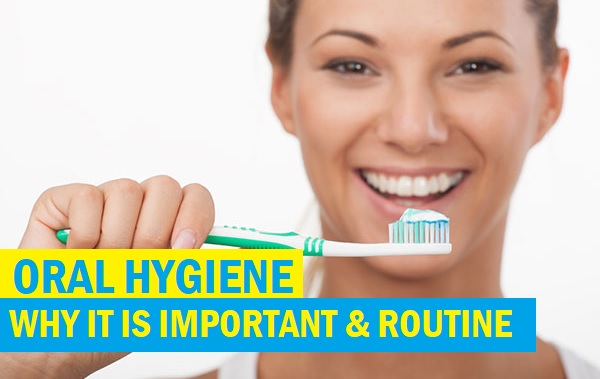
Why is Oral Hygiene Important?
Oral hygiene is not just about maintaining a bright smile; it plays a vital role in your overall health and well-being. Taking proper care of your teeth and gums can prevent a range of dental issues and contribute to your overall quality of life. Maintaining good oral health is more than just having a dazzling smile; it’s a crucial aspect of overall well-being. An ideal oral health routine involves a combination of daily practices, a balanced diet, and regular dental check-ups. In this article at TipsandBeauty blog, we’ll explore the elements of an effective oral health routine that can lead to a healthier mouth and a more confident you.
What is Oral Hygiene?
Oral hygiene is the routine which focusses on keeping the oral cavity that is your mouth, teeth, and gums healthy. It involves regular dental care routines, including brushing, flossing, and visiting the dentist for check-ups. Proper oral hygiene prevents the buildup of plaque and bacteria that can lead to dental problems.
Why Oral Health Is Important?
Maintaining good oral health is not limited to having a confident smile. It has far-reaching effects on your general well-being as well. Research has shown a strong connection between oral health and various health conditions, including cardiovascular diseases, diabetes, and even respiratory infections. Oral health extends beyond teeth and gums. It encompasses the health of your entire mouth, including the tongue, cheeks, and roof of the mouth. Neglecting oral health can lead to various issues, from cavities and gum disease to bad breath and tooth sensitivity.
Impact on Overall Health
Your mouth is a gateway to your body, and oral health has a significant impact on the rest of your system. Poor oral hygiene can lead to the proliferation of harmful bacteria in your mouth, which can then enter your bloodstream and contribute to inflammation in other parts of the body. This inflammation has been linked to serious health issues like heart disease and diabetes.
Common Oral Health Issues
Neglecting oral hygiene can lead to various dental problems that can impact your quality of life and overall health.
Cavities and Tooth Decay
Improper oral care can lead to the buildup of plaque on your teeth, which produces acids that erode the enamel, leading to cavities and tooth decay. Cavities can cause pain, discomfort, and difficulty in eating.
Gum Disease
Gum disease, or oral cavity disease is also referred to periodontal disease. Gum disease is tissue infection that surround and support the teeth. It can range from gingivitis, characterized by swollen and bleeding gums, to advanced stages that can result in tooth loss. Gum disease has been linked to systemic health issues, as the bacteria from the mouth can travel to other parts of the body.
Daily Oral Hygiene Practices
Maintaining oral hygiene requires consistent and effective daily practices.
Brushing Techniques
Brushing helps remove food particles, plaque, and bacteria from the surfaces of your teeth. Brushing your teeth twice a day at least with a fluoride toothpaste is recommended by the dentists. For this, you can use soft-bristle toothbrush with gentle circular motions. Brushing cleans the surfaces of your teeth and removes bacteria and food particles.
Flossing Importance
Flossing is equally important as brushing, as it cleans between your teeth and along the gumline where a toothbrush can’t reach. Flossing helps prevent cavities and gum disease by removing debris that can lead to plaque buildup. Flossing complements brushing by reaching areas between teeth and along the gumline that a toothbrush can’t access.
Additional Oral Care Practices
Tongue Cleaning
Cleaning your tongue is an often-overlooked aspect of oral care. Bacteria can accumulate on the tongue’s surface, leading to bad breath and bacterial growth. Using a tongue scraper after the brushing or before ensures that the tongue is free of the build-up of bacteria and keeps the tongue clean.
Mouthwash Usage
In addition to brushing and tongue scrapping, a final step of using a mouth rinse using a mouthwash can provide additional protection against bacteria and halitosis (bad breath). Choose an antimicrobial mouthwash to kill harmful bacteria while freshening your breath. Remember, mouthwash is not a substitute for brushing and flossing but an adjunctive measure.
Chewing Sugar-Free Gum
Chewing sugar-free gum after meals can stimulate saliva production, which helps neutralize acids and promote oral health. Look for gum sweetened with xylitol, a sugar substitute that doesn’t contribute to cavities.
Importance of Regular Dental Check-ups
Professional Cleanings
Regular dentist visits ensures that optimal oral health is maintained. Dentists can identify issues in their early stages, preventing them from worsening. Professional cleanings remove stubborn plaque and tartar buildup that regular brushing and flossing can’t eliminate. Professional dental cleanings remove plaque and tartar buildup that cannot be removed by regular brushing and flossing alone. Cleanings help prevent cavities and gum disease and leave your teeth feeling refreshed. Regular visits to the dentist are essential for maintaining good oral health.
Regular Dental Check-ups
Visiting the dentist for regular check-ups allows for the early detection of potential issues and prevents them from worsening. Dentists can identify problems like cavities, gum disease, and oral cancer in their early stages.
Lifestyle and Diet Factors
Your lifestyle and diet choices play a significant role in your oral health.
Sugar Consumption
Limiting your intake of sugary foods and beverages can help prevent cavities. You may be well aware of this that the bacteria in the oral cavity residing on the teeth, gums and tongue actually utilizes on sugar, post which they produce acids that are so strong that they can erode tooth enamel. Hence, initiating cavities.
Hydration and Saliva
Staying hydrated promotes the production of saliva, which helps cleanse the mouth and neutralize acids produced by bacteria. Drinking water also rinses away food particles and debris. Drinking water is not only essential for overall health but also for oral health. To sum up, water helps rinse away food particles and bacteria, preventing the buildup of plaque. It also promotes saliva production, which helps neutralize acids and maintain a healthy pH level in the mouth.
Nutrient-Rich Foods
A balanced diet contributes to better oral health. Include nutrient-rich foods like fruits, vegetables, lean proteins, and dairy products in your meals. These foods provide essential vitamins and minerals that support strong teeth and healthy gums.
Oral Hygiene Tips for Children
Instilling good oral hygiene habits in children is essential for their long-term oral health. Encourage them to brush and floss regularly and make dental visits enjoyable to set a positive tone for their oral care journey.
Avoiding Harmful Habits
Tobacco and Smoking
Tobacco use, including smoking and chewing tobacco, can wreak havoc on oral health. It increases the risk of gum disease, tooth decay, oral cancer, and bad breath. Quitting tobacco is one of the best steps you can take for your oral health.
Excessive Sugar Consumption
Excess sugar consumption fuels bacterial growth and leads to cavities. Limit your intake of sugary foods and beverages, especially carbonated drinks and sweets. Choose healthier snack options.
Oral Health and Self-Confidence
It won’t be exaggeration, if we say that other than the physical implications, oral health and hygiene has a significant impact on one’s self-confidence. A healthy smile boosts self-esteem and contributes to positive social interactions.
Oral hygiene is a cornerstone of overall health. By practicing proper oral care, you can prevent dental issues, improve your overall well-being, and enjoy the benefits of a confident and radiant smile. Remember, a little effort today can lead to a lifetime of better oral health.
An ideal oral health routine involves a holistic approach that includes consistent brushing and flossing, a balanced diet, regular dental visits, and adopting positive oral care practices. By taking these steps, you can achieve a healthier mouth, stronger teeth, and the confidence that comes with a radiant smile.
FAQs
How often should we see the dentist for oral check-ups?
It’s recommended to visit the dentist every six months for routine check-ups and cleanings.
Is it true that the electric toothbrushes are more effective than manual ones?
Electric toothbrushes can provide more thorough cleaning due to their oscillating or rotating motions.
Can poor oral health affect pregnancy?
Yes, poor oral health has been linked to premature birth and low birth weight in babies.
Is mouthwash necessary for oral hygiene?
While not a replacement for brushing and flossing, antimicrobial mouthwash can help kill bacteria and freshen breath.
Are there any age limits for maintaining good oral hygiene?
Oral hygiene is important at every age, from childhood through adulthood and into the senior years.
How often should I replace my toothbrush?
It’s recommended by the dentists that the toothbrush must be replaced every three to four months or sooner.
Can I use baking soda to brush my teeth?
While some people use baking soda as a natural toothpaste alternative, it’s best to consult your dentist before making any changes to your oral care routine.
How can I prevent bad breath?
Regular brushing, flossing, tongue cleaning, and staying hydrated can help prevent bad breath. If the issue persists, consult your dentist.
Is mouthwash safe for children?
Mouthwash is generally not recommended for children under the age of six. Consult your dentist before introducing mouthwash to your child’s routine.
Can oral health impact my self-confidence?
Yes, a healthy smile can boost your self-esteem and positively impact your overall confidence in social interactions.
 Tips and Beauty Site about Skin care, Hair care, Health, weight loss and lifestyle tips
Tips and Beauty Site about Skin care, Hair care, Health, weight loss and lifestyle tips






